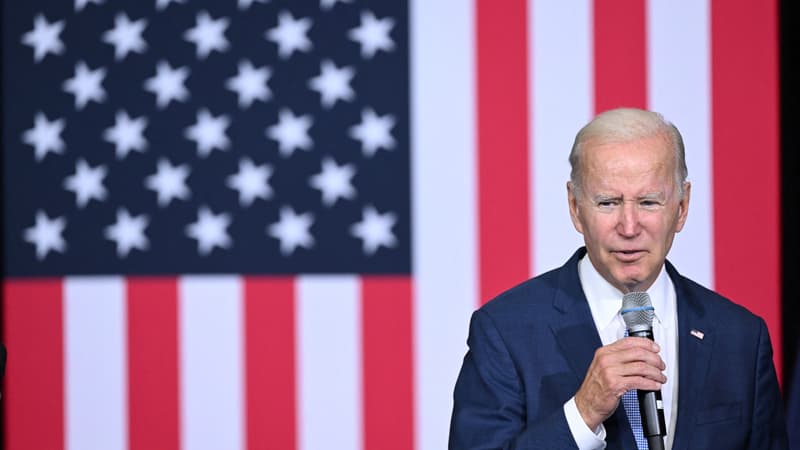A first anniversary for the IRA on the other side of the Atlantic. When it was launched, the great climate plan led by Joe Biden, and especially its 370,000 million dollars in subsidies and tax incentives in favor of “made in the USA”, had been perceived as a serious threat by the Europeans. “It’s a protectionist policy, you don’t have to hide it,” confirms Jean-Éric Branaa, a professor at the University of Paris 2 and a specialist in the United States, at BFM Business.
The main objective of the ERI is to promote the development of clean energy and electric vehicles. Based on the observation that manufacturing plants have “gone overseas,” particularly to China, the plan aims to “bring all these little people back to the United States to give back to the middle class and ‘hardworking blue collar’ [les ouvriers, ndlr] enough to work” and relaunch the American industrial apparatus after the health crisis “that put everyone on the ground,” explains the specialist.
Hydrogen and batteries
The fears of Europeans have been justified with certain concrete examples, particularly in the energy transition sector. In hydrogen, the Norwegian group Nel has moved its electrolysers to the other side of the Atlantic, while the German group Thyssenkrupp Nucera has several American offers. As for solar panels, the Korean group Hanwha Q-Cells has invested $2.5 billion in the United States to produce photovoltaic cells.
But the sector where the consequences are most visible is that of batteries. Norwegian group Freyr has already moved to Georgia for $1.8bn in investment, while the Total-Stellantis joint venture (ACC) plans to build factories on US soil. The automotive sector is also worried: the German group Volkswagen has estimated in particular that it will be able to obtain 10,000 million in US subsidies.
With disparities between European countries: France, with ACC or Verkor, has more advanced and less fragile projects than Germany, which could see the Tesla factory repatriated to the United States. However, the European response to the IRA is slow in coming. “The United States is a federal state,” where there is “a single leadership at the forefront of decision-making,” says Jean-Éric Branaa, unlike the Europeans who “must first discuss” and “commit all parties.”
For the specialist, “if there had been [les 51] United States to convince, we would never have seen this plan born in the United States.”
Source: BFM TV


